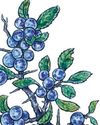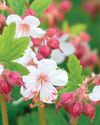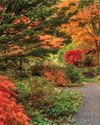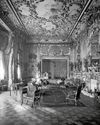John Lewis-Stempel visits the village of Cognac to learn how the eponymous digestif and the local wine, pineau, is made

WE drove down to Cognac yesterday. Road signs on the 25-mile journey to the capital of brandy manufacture were hardly required. We just followed the sun and the increasing congregation of vineyards. On the D731, outside Cognac, the vineyards reach the horizon.
In winter, Cognac’s viticultural flatland is a sort of hell—endless, pierced with stakes, tied with lines of wire. In winter, the regimentation of the yards brings always to mind war cemeteries. Yesterday, the vineyards were draped along in summer’s green leaves and young growing grapes, which softened the scene—somewhat.
The production of wine, regular or distilled into brandy, is not always a pretty process. Before I moved to France, I fondly imagined the château on the bottle label was exactly that, a dreamy confection of a French country house, the refinement of which was only outdone by that of the baron-owner, as he walked his vineyard in September’s dewy dawn, cashmere cardigan loosely wrapped over his shoulders. Actually, château in vinification is but a prefix attachable to any old vineyard, the building on which can be a breeze-block shed and often is.
The day out in Cognac was a bit of a busman’s day trip; my wife and I intend to produce pineau, a local fortified wine made from fermented grape must and cognac. In the cave of our Charentais house, all the kit of pineau manufacture lies about—stone vats, a giant screw-press, bottles, a barrel ramp—although unused for five or more cobwebby decades.
Denne historien er fra June 26, 2019-utgaven av Country Life UK.
Start din 7-dagers gratis prøveperiode på Magzter GOLD for å få tilgang til tusenvis av utvalgte premiumhistorier og 9000+ magasiner og aviser.
Allerede abonnent ? Logg på
Denne historien er fra June 26, 2019-utgaven av Country Life UK.
Start din 7-dagers gratis prøveperiode på Magzter GOLD for å få tilgang til tusenvis av utvalgte premiumhistorier og 9000+ magasiner og aviser.
Allerede abonnent? Logg på

Kitchen garden cook - Apples
'Sweet and crisp, apples are the epitome of autumn flavour'

The original Mr Rochester
Three classic houses in North Yorkshire have come to the market; the owner of one inspired Charlotte Brontë to write Jane Eyre

Get it write
Desks, once akin to instruments of torture for scribes, have become cherished repositories of memories and secrets. Matthew Dennison charts their evolution

'Sloes hath ben my food'
A possible paint for the Picts and a definite culprit in tea fraud, the cheek-suckingly sour sloe's spiritual home is indisputably in gin, says John Wright

Souvenirs of greatness
FOR many years, some large boxes have been stored and forgotten in the dark recesses of the garage. Unpacked last week, the contents turned out to be pots: some, perhaps, nearing a century old—dense terracotta, of interesting provenance.

Plants for plants' sake
The garden at Hergest Croft, Herefordshire The home of Edward Banks The Banks family is synonymous with an extraordinary collection of trees and shrubs, many of which are presents from distinguished friends, garnered over two centuries. Be prepared to be amazed, says Charles Quest-Ritson

Capturing the castle
Seventy years after Christian Dior’s last fashion show in Scotland, the brand returned under creative director Maria Grazia Chiuri for a celebratory event honouring local craftsmanship, the beauty of the land and the Auld Alliance, explains Kim Parker

Nature's own cathedral
Our tallest native tree 'most lovely of all', the stately beech creates a shaded environment that few plants can survive. John Lewis-Stempel ventures into the enchanted woods

All that money could buy
A new book explores the lost riches of London's grand houses. Its author, Steven Brindle, looks at the residences of plutocrats built by the nouveaux riches of the late-Victorian and Edwardian ages

In with the old
Diamonds are meant to sparkle in candlelight, but many now gather dust in jewellery boxes. To wear them today, we may need to reimagine them, as Hetty Lintell discovers with her grandmother's jewellery